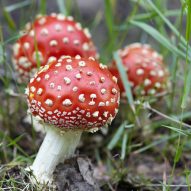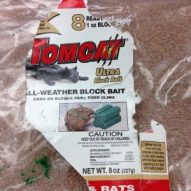Mushroom toxicity in dogs | Dr. Justine Lee
While there are thousands of species of mushrooms in North America, less than 100 are poisonous; these are most commonly of the Amanita species. Unfortunately, mushrooms are very difficulty to identify, and unless you are a mushroom expert/hunter or mycologist, then you should never eat a wild mushroom. Mushrooms sold in large-chain grocery store are safe and considered non-toxic to dogs. There are 5 main types of mushrooms that are poisonous, and they all work by different ways. The most...
Read MoreFall poisons that can poison your dog or cat! | Dr. Justine Lee
As autumn approaches, so do new potential dangers that pose a threat to your dog and cat. Here, the top 5 fall toxins to be on the lookout for as summer ends! Keep your pet safe by keeping these out of reach! Rodenticides: As the weather gets colder, mice and rats start seeking shelter in warm locations… in other words, your house! Unfortunately, the start of autumn means the start of mouse and rat poisoning. There are several types of active ingredients in these mouse and rat poisons, and...
Read MoreMouse and rat poisoning in dogs | Dr. Justine Lee
As the weather gets colder, mice and rats start seeking shelter in warm locations… in other words, your house! Unfortunately, the start of autumn means the start of mouse and rat poisoning, putting your dog or cat at risk. In today’s blog, we’ll talk about the 4 different types of active ingredients found in these mouse and rat poisons. These poisons all work (and kill) in different ways, so pay heed! While the most common type of mouse poison (e.g., brodifacoum, bromadiolone, etc.) often...
Read MoreHow to treat cocaine poisoning in dogs | Dr. Justine Lee
In the animal emergency room, I occasionally see dogs poisoned by illicit substances. This is more prevalent in working police dogs who are often exposed to these potentially life-threatening drugs (e.g., as part of a drug bust or during training). In the next few blogs, I’m going to review overall management and treatment of some common toxins that I see. In today’s blog, we’ll talk about how to...
Read MoreThe Top 5 Cat Toxins | Dr. Justine Lee
Own a cat? Know how to “cat-proof” your house? If you’re not sure if your house is appropriately pet-proof, read on! According to ASPCA Animal Poison Control Center (APCC), some of the most common feline poisons include: Flea and tick medication (e.g., topical spot-on insecticides) Household cleaners (e.g., bleach, surface cleaners, etc.) Human medications (e.g., amphetamines used for ADD/ADHD, antidepressants) Plants (e.g., poisonous lilies, etc.) Human and veterinary pain...
Read More





Recent Comments